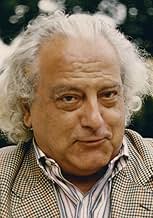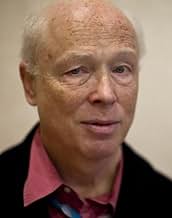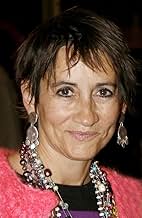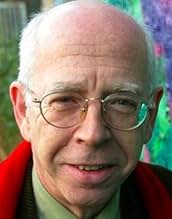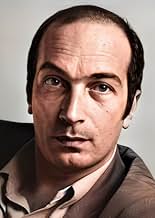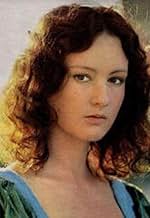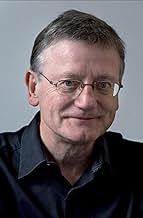VALUTAZIONE IMDb
7,7/10
7112
LA TUA VALUTAZIONE
Lo sciovinista Alexandre equilibra i rapporti con diverse donne nella scena intellettuale di Parigi dopo il 1968.Lo sciovinista Alexandre equilibra i rapporti con diverse donne nella scena intellettuale di Parigi dopo il 1968.Lo sciovinista Alexandre equilibra i rapporti con diverse donne nella scena intellettuale di Parigi dopo il 1968.
- Premi
- 3 vittorie e 1 candidatura in totale
Jean-Claude Biette
- Un homme aux Deux Magots
- (non citato nei titoli originali)
Jean Douchet
- Un homme au Café de Flore
- (non citato nei titoli originali)
Bernard Eisenschitz
- Maurice
- (non citato nei titoli originali)
Jean Eustache
- Le mari de Gilberte
- (non citato nei titoli originali)
- …
Caroline Loeb
- Une jeune fille qui lit le journal en terrasse
- (non citato nei titoli originali)
Noël Simsolo
- Un homme au Café de Flore
- (non citato nei titoli originali)
Trama
Lo sapevi?
- QuizThis film is based on the real-life relationship between director Jean Eustache and actress Francoise Lebrun (who plays Veronika). The character based on her is named Gilberte in the movie and is played by Isabelle Weingarten.
- BlooperAlexandre can be seen drinking a bottle of 1970 Gevrey-Chambertin, which would have been far too expensive for him to have purchased. This error is illuminated by his notable lack of money during the cafe scene, in which his date pays for his bill.
- ConnessioniFeatured in Storia del cinema: Un'odissea: European New Wave (2011)
- Colonne sonoreIch weiß, es wird einmal ein Wunder gescheh'n
Written by Bruno Balz, Michael Jary and Ralph Benatzky
Performed by Zarah Leander
Recensione in evidenza
... is because of films like this.
Don't get me wrong. I like independent cinema, and particularly like good foreign films, but this film could have been cut by at least an hour.
I'll explain.
The film revolves around a self centered young man who professes he loves certain women, but is really looking for someone to love him. Enter a woman who doesn't love herself, but finds this same young man, taps his energy, and both wind up "flowering" for it.
This movie revolves around the sexual morays and politics of a small group of Parisians. The film starts out very strong. Actors present characters in an extended first act that we would like to get to know, but, unfortunately this pic becomes the poster boy for the proverbial "long boring French film" replete with characters who light up cigarettes and talk in either cafés or materially spartan rented rooms about how life should be different, and what it all means. Toss in an Oedipal complex/undercurrent, and you have the quintessential French avante-garde flick.
Huh.
Inspite of this there's some good material in this film, but director Jean Eustache (probably to make up for lack of scheduling and some technical aspects) throws a lot of dialog at the audience that would've have been better served with some visual cues.
All in all it shows how messed up an certain sect of French culture really is, and, perhaps ironically, drives home a realist message regarding the act of coupling.
Technically it's bare bones. Lots of natural lighting is fused with high contrast B&W cinematography, and to add to the rugged feel of the film the scratch track is used. Little to no looping of dialog. You can hear what pros call "room tone" as it was actually recorded during filming.
I could go off the deep end and call this film self-indulgent, pretentious et al, but will say instead that the exposition given to the story was "over-exposed" (for lack of a better term). The symbolism is fine, but a lack of visuals and a borderline in-you-face delivery of certain dialog, hampers what could have been a much better film. By that I don't mean commercially successful nor accessible, but a film that could have delivered the same gists, character and message without the flaunting its strive for artistic excellence.
Don't get me wrong. I like independent cinema, and particularly like good foreign films, but this film could have been cut by at least an hour.
I'll explain.
The film revolves around a self centered young man who professes he loves certain women, but is really looking for someone to love him. Enter a woman who doesn't love herself, but finds this same young man, taps his energy, and both wind up "flowering" for it.
This movie revolves around the sexual morays and politics of a small group of Parisians. The film starts out very strong. Actors present characters in an extended first act that we would like to get to know, but, unfortunately this pic becomes the poster boy for the proverbial "long boring French film" replete with characters who light up cigarettes and talk in either cafés or materially spartan rented rooms about how life should be different, and what it all means. Toss in an Oedipal complex/undercurrent, and you have the quintessential French avante-garde flick.
Huh.
Inspite of this there's some good material in this film, but director Jean Eustache (probably to make up for lack of scheduling and some technical aspects) throws a lot of dialog at the audience that would've have been better served with some visual cues.
All in all it shows how messed up an certain sect of French culture really is, and, perhaps ironically, drives home a realist message regarding the act of coupling.
Technically it's bare bones. Lots of natural lighting is fused with high contrast B&W cinematography, and to add to the rugged feel of the film the scratch track is used. Little to no looping of dialog. You can hear what pros call "room tone" as it was actually recorded during filming.
I could go off the deep end and call this film self-indulgent, pretentious et al, but will say instead that the exposition given to the story was "over-exposed" (for lack of a better term). The symbolism is fine, but a lack of visuals and a borderline in-you-face delivery of certain dialog, hampers what could have been a much better film. By that I don't mean commercially successful nor accessible, but a film that could have delivered the same gists, character and message without the flaunting its strive for artistic excellence.
I più visti
Accedi per valutare e creare un elenco di titoli salvati per ottenere consigli personalizzati
- How long is The Mother and the Whore?Powered by Alexa
Dettagli
- Data di uscita
- Paese di origine
- Siti ufficiali
- Lingua
- Celebre anche come
- The Mother and the Whore
- Luoghi delle riprese
- Café Les Deux Magots - 6 place Saint-Germain-des-Prés, Paris 6, Parigi, Francia(Alexandre's usual café)
- Aziende produttrici
- Vedi altri crediti dell’azienda su IMDbPro
Botteghino
- Lordo Stati Uniti e Canada
- 40.555 USD
- Fine settimana di apertura Stati Uniti e Canada
- 5.135 USD
- 25 giu 2023
- Lordo in tutto il mondo
- 47.344 USD
- Tempo di esecuzione3 ore 37 minuti
- Colore
- Mix di suoni
- Proporzioni
- 1.37 : 1
Contribuisci a questa pagina
Suggerisci una modifica o aggiungi i contenuti mancanti

Divario superiore
What was the official certification given to La maman et la putain (1973) in Japan?
Rispondi
